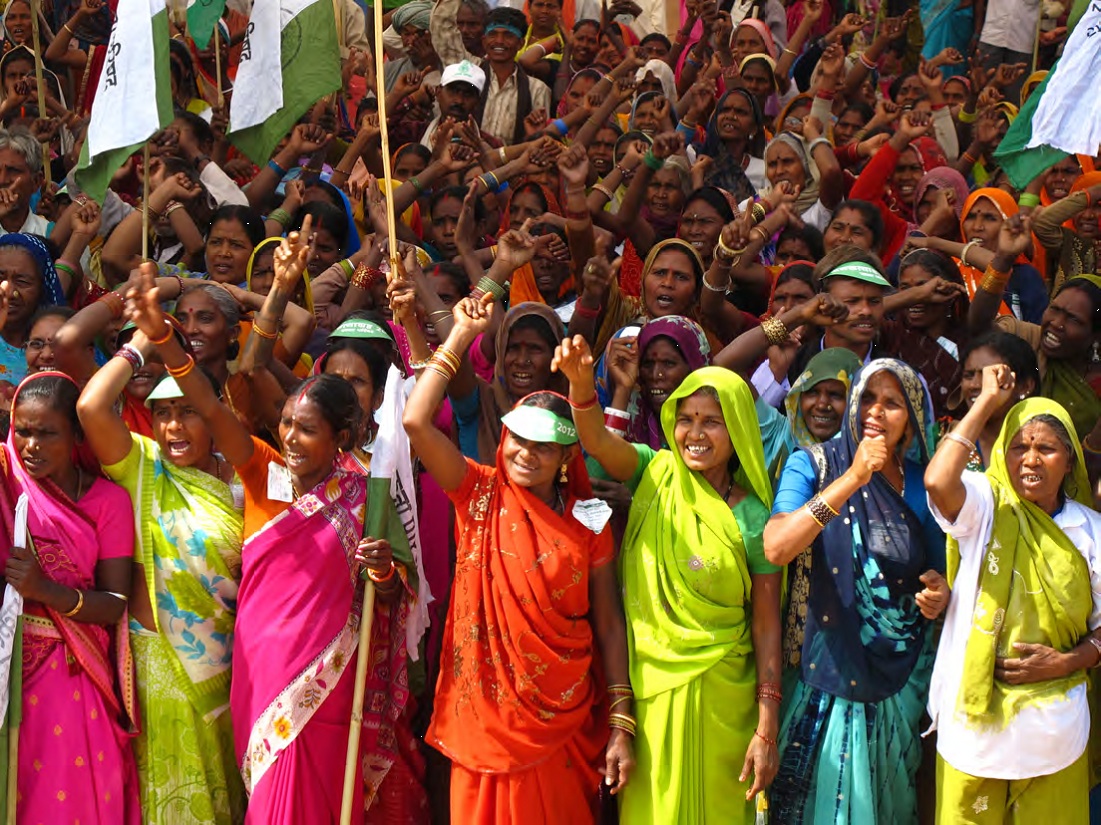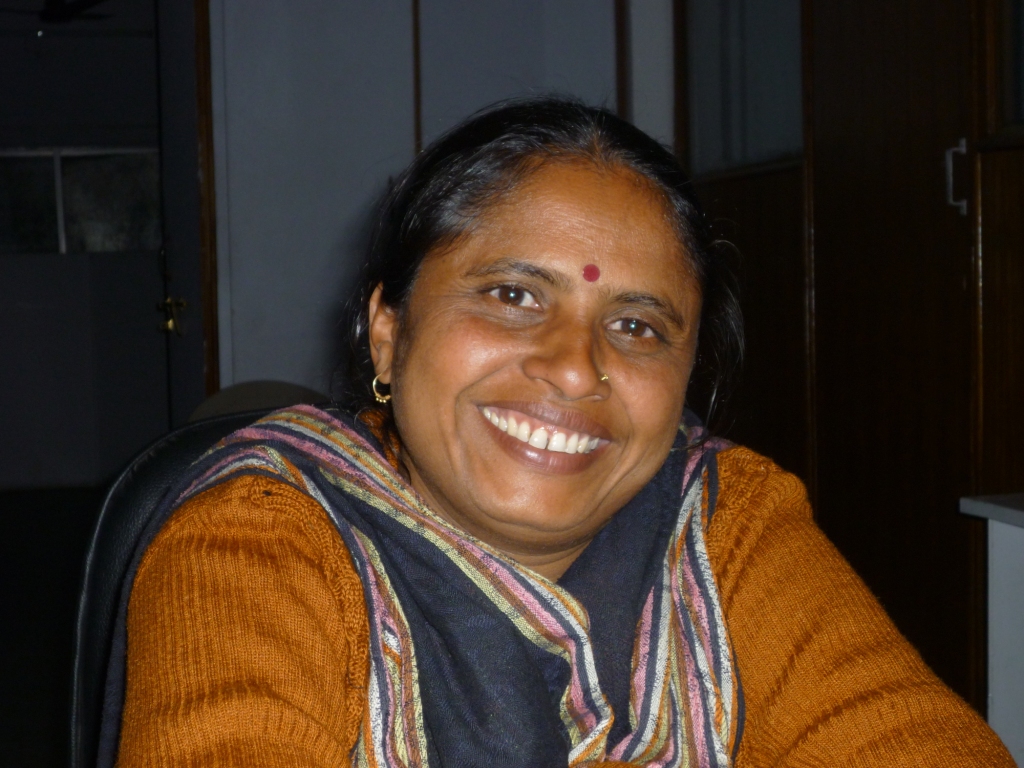According to a FAO report published in 2010/2011 on “Women’s role in agriculture”, “closing the gender gap in agricultural inputs alone could lift 100–150 million people out of hunger”. Women around the world accomplish about 80% of agricultural work and are, because of the situation as mothers, the stable element of the household: they are as well the first victims of populations’ displacements having little or no rights to access land and natural resources. One of Ekta Parishad’s claims is to establish the recognition women’s empowerment as a development factor, and to grant them land rights.
Ekta Mahila Manch, the women wing of Ekta Parishad :
Since 2000, Ekta Parishad includes a women wing, Ekta Mahila Manch, which aims to reinforce women’s implication in the movement. Concretely, Ekta Mahila Manch’s action consists in ensuring that women can struggle themselves for their rights, through training on rights and non-violence, development of their leadership, participation on village councils, etc. The objective is also to enable women to gain autonomy, notably by organizing self-help groups which encourage their economic independency. These actions lead to a real development process for women : they socialize in self-help groups, while developing their livelihood resources, and thus they start to perceive themselves in a social role, not only in a domestic one, to analyze problems in the society and to express their opinion. Finally, they acquire capacities in leadership that enable them to fully play a role at social, economic and political levels. In 2010-2011, Ekta Mahila Manch organized many leadership trainings for women, and also marches, public meetings, etc. For 2012, the objective of Ekta Mahila Manch was to ensure the participation of 50% of women in the March Jan Satyragraha, which means the participation of 50 000 women.

Women’s day in Delhi, 2011
Rajkali Patel, national coordinator of Ekta Mahila Manch, a portrait :
Rajkali Patel is born in 1967 in Gaura, a village in the East of Madhya Pradesh, in a family of landless farmers. Whereas girls normally received little education, Rajakali studied up to the end of secondary school. Married at 11 years-old, she lived with her husband from 1985, and learnt stitching. After very hard years, she learnt that a youth training camp would be organized in the neighboring village and decided to attend it. The speech of Rajagopal P.V., who would found Ekta Parishad one year later, on social change, echoed her desire to work for changing the society which she founds to be non-egalitarian. Selected at the end of the training, she would be in charge of working in villages around Gaura until 1994. During following years, Rajkali will teach in a school and manage a government literacy programme. To reach her different working places she learnt to cycle, during the night, and became the first woman of the area to cycle. In 2004, Rajagopal asked her to join Ekta Parishad full-time to train women. In 2006, she became the coordinator of Ekta Mahila Manch for Madhya Pradesh, and since April 2011, she is the national coordinator of the women wing. She is also very active in the cultural wing of Ekta Parishad through singing and song-writing, songs taken up by activists during marches. In more than 20 years of commitment, Rajkali have seen positive change: women realize that they have capacities to do things by themselves, without men’s support, parents give more importance to their daughters than before. Of course, a lot still have to be done. Rajkali has the project to create “model villages”, in which every problems – concerning women, education, access to land, etc. – would be considered.

Rajkali Patel, coordinator of Ekta Mahila Manch